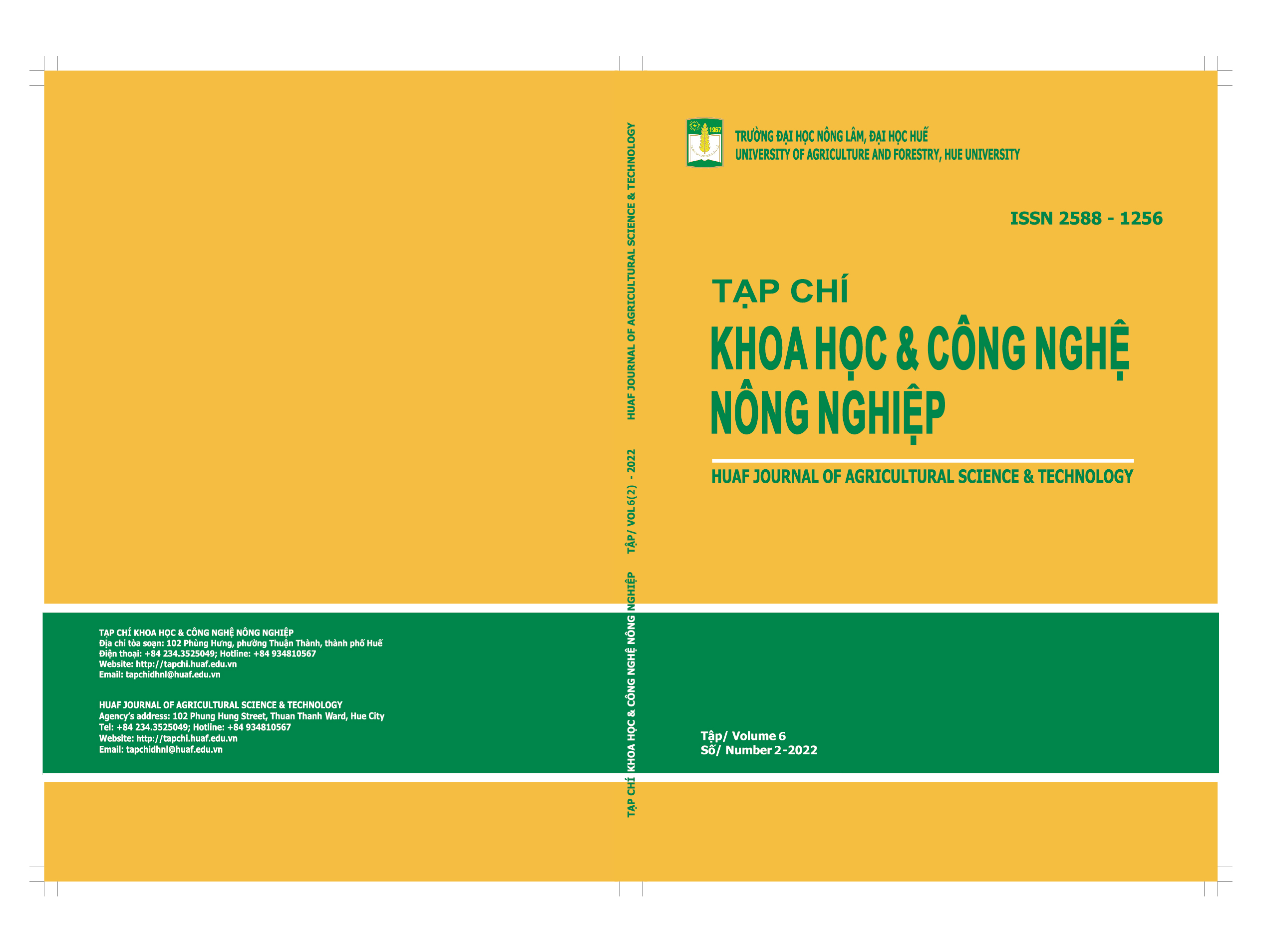##plugins.themes.huaf_theme.article.main##
Tóm tắt
Nghiên cứu nhằm đánh giá ảnh hưởng kết hợp của nhiệt độ và độ mặn lên sinh lý, tăng trưởng và hoạt tính enzyme tiêu hoá của cá lóc (Channa striata) giai đoạn cá bột lên cá giống. Cá bột được ương ở 3 mức nhiệt độ (27oC, 30oC và 33oC) kết hợp với 3 mức độ mặn (0, 5 và 10‰). Kết quả cho thấy độ mặn và nhiệt độ không ảnh hưởng đến các chỉ tiêu hồng cầu, hemoglobin và hematocrit của cá. Tuy nhiên, số lượng bạch cầu giảm ở nghiệm thức độ mặn 27oC-5‰, 30oC-5‰ và nhóm nhiệt độ 33oC. Nồng độ glucose giảm có ý nghĩa ở nhóm độ mặn 5‰ so với 0‰ (p<0,05). Nồng độ ion Cl- của cá tăng khi nhiệt độ và độ mặn tăng nhưng điều hòa áp suất thẩm thấu và Na+ không bị ảnh hưởng. Độ mặn và nhiệt độ không làm thay đổi hoạt tính amylase, trypsin và pepsin nhưng chymotrypsin trong ruột cá giảm ở nghiệm thức độ mặn và nhiệt độ cao. Cá đạt khối lượng cao nhất ở 27oC-0‰ và tỷ lệ sống cao nhất ở 33oC-0‰. Như vậy, độ mặn kết hợp nhiệt độ cao có ảnh hưởng đến tăng trưởng của cá lóc ở giai đoạn này.


